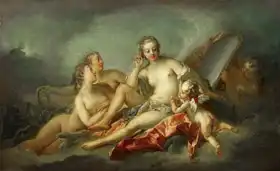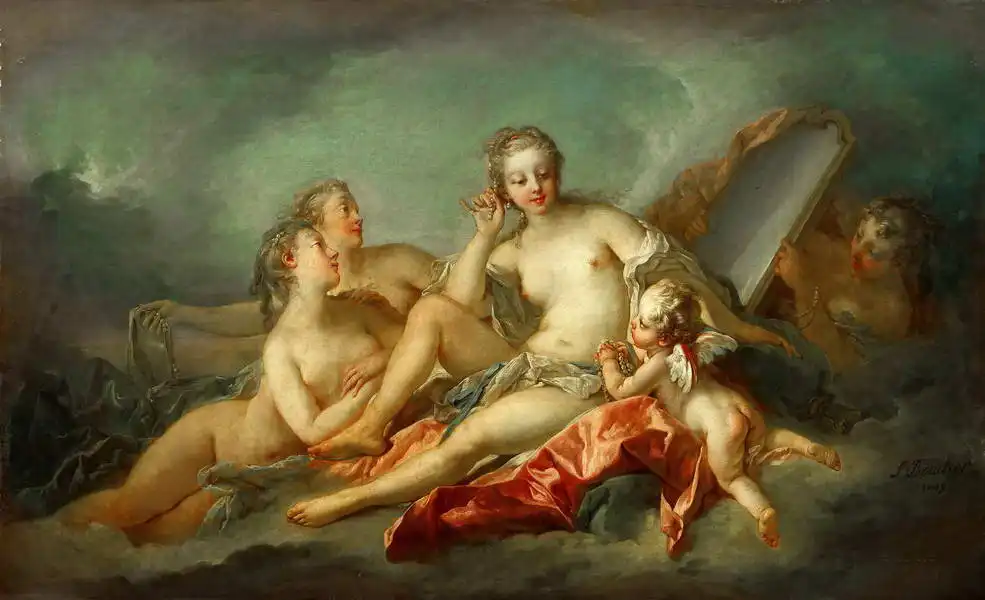About this finishing
Print. The image is printed on the top quality 10-ink HP Z9PS printer on HP matte 270 g / m2 paper. You can choose any size to an accuracy of 1 cm. A margin of 5 cm around the image is added to the size of the motif.


You can find a detailed description about our finishings
here.
Toilet of Venus
Date:
1749The painting depicts four nude figures, probably allegorical female figures, in an arrangement that evokes a mythological or historical scene. Three adult figures are posed and interacting with each other, while one small figure, possibly a cherub, sits separately and plays with fruit. The background of the painting is washed out, with soft tones of green and grey, giving the whole composition an oneiric, ambiguous character. The overall atmosphere is romantic and gives the impression of calm and contemplation.
This description was created by artificial intelligence, please be indulgent.
Boucher painted picture Toilet of Venus in 1749. Prevailing color of this fine art print is vivid and its shape is long. This image is printed on demand - you can choose material, size and finishing.
François Boucher (1703-1770). He was a French painter and one of the main representatives of the Rococo style. He also worked as a court portraitist of Madame de Pompadour. Further, he was an excellent draftsman, and his way of drawing is reminiscent of
Rubens and
Watteau. According to some sources, Boucher created over 10,000 drawings and a wealth of images. The tapestry manufactory of Beauvais plays an important role in his own work. Boucher’s other work includes various topics, such as portraits, historical and mythological paintings and pastoral scenes, among others. His choice of colour is subtle, motifs are very sensual and in portraits, Boucher focuses primarily on the elegant pose of the model, not psychology. With these capabilities, Boucher was considered one of the best painters of his time. However, already during his life, critics pointed to his affectation and artificiality. One of the much-trumpeted critics, Denis Diderot, accused Boucher of painting women as prostitutes and placating the tastes of the nobility. Diderot’s criticism caused the public to condemn, rather than admire, Boucher by the end of his life.



